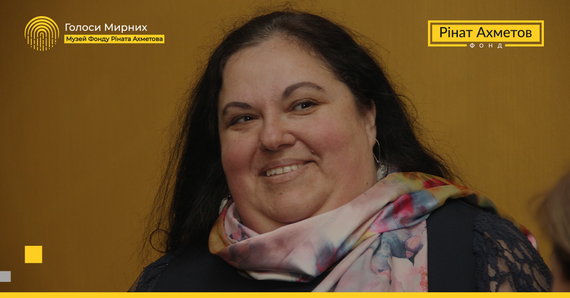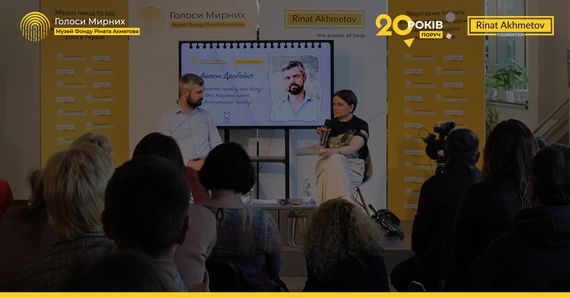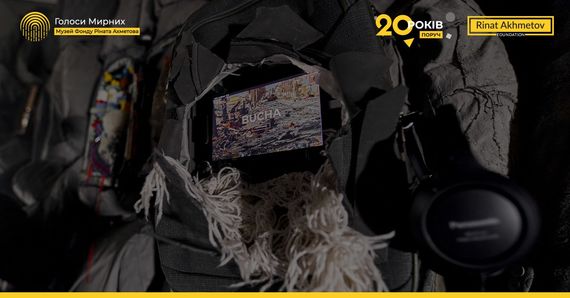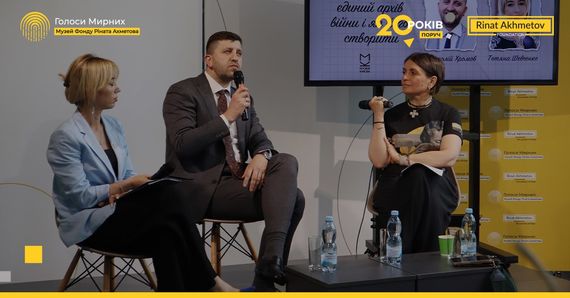"Memory is what unites": an interview with Lesia Hasydzhak, Head of the Holodomor Museum, for The Museum of Civilian Voices by Rinat Akhmetov Foundation

Why is it crucial for Ukrainians to remember? Why is it crucial to preserve knowledge about ourselves and pass it on to the world and future generations? How are approaches to memorialisation changing during the war? What is the trend towards rethinking museums? Lesia Hasydzhak, PhD in History, acting Director General of the National Museum of the Holodomor-Genocide, and museologist, spoke about this as part of the VOICES Exhibition of The Museum of Civilian Voices by Rinat Akhmetov Foundation.
The conversation, moderated by the cultural critic and curator Anastasiia Platonova, also focused on the topic of memory museums as a separate niche within the museum community and the role they play in times of full-scale war. They also discussed the parallels between the past and the causes of this war.
"The war has actualised the missions, tasks and values of museums. That is, no one is talking only about the history that happened 90 or 80 years ago. All this has very clear parallels, common roots with the causes of the current war. There was a time when it seemed that everything had already been explored; people wanted to live in the future and were only interested in museums of super-science or achievements. But the war has once again shown how important it is to continue doing what each of us is doing," emphasises Lesia Hasydzhak.
In her opinion, the ongoing war has affected how the experiences are expressed. The language of art has come to the fore, and a deeper, more expository language takes time to form.
"Most projects about the war are art projects, not classic museological or documentary projects. I would not say that there is a classic museum project related to the war in Ukraine. Everyone is engaged in accumulating and forming part of the collection, but the time has not come to transform this into an exhibition language. First, we need to win the war, comprehend it, understand it, research it, mourn it, and then build a museum," said Lesia Hasydzhak.
Read the full interview on The Museum of Civilian Voices by Rinat Akhmetov Foundation's website: https://bit.ly/3z8DCPy
Source: Istorychna Pravda: https://bit.ly/4cZHIbn
Watch the video interview with Lesia Hasydzhak on YouTube: https://bit.ly/4fsnDfM
The Museum is preparing a new cycle of cultural events, which will be announced in the near future.
The Museum of Civilian Voices by Rinat Akhmetov Foundation collects and stores the world's largest collection of first-hand accounts of the war in Ukraine - more than 110,000 stories. The VOICES Exhibition, which was visited by over 5,000 people, was held at The Museum of History of Kyiv, based on the stories collected by The Museum of Civilian Voices and aiming to reveal the depth and power of Ukrainians' stories about the war.
Follow the announcements of events in the social networks of the Rinat Akhmetov Foundation and on the portal of The Museum of Civilian Voices: https://civilvoicesmuseum.org/



